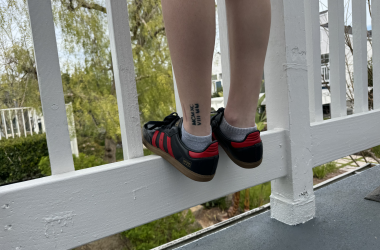COVID-19 has been affecting people around the world for over two years now, and data shows that a new wave of the virus will be hitting us very soon.
The new wave is not something for us to panic about. This time, the mass majority of people in the U.S. are vaccinated, and the necessary precautions are practically implanted in us. I believe the new wave won’t drastically impact us. We’ve made a lot of progress during this pandemic. At this point, the pandemic should be nearing its end
When the first wave of COVID-19 hit the world, we went into a state of panic. People were dying or being hospitalized and the news cycle was entirely focused on the pandemic.
According to Mayo Clinic, 65.8% of the U.S. population is fully vaccinated, while 77.2% have at least one dose. With over half the country vaccinated, our country is in better shape compared to the start of the pandemic.
U.S. officials are currently tracking the progression of BA.2, the Omicron subvariant, and so far the cases have increased in the Northeast and West, including European countries.
The U.S. has fortunately not seen an increase in cases, but they will continue to track affected countries.
With the new wave of the virus, U.S. Surgeon General Vivek Murthy said that the people of the U.S. should be focused more on preparing for the wave versus going into a state of panic.
According to the U.S. Census website, 83.3% of adults 18 or older have received at least one dose of the vaccine, and 99.2% of them are planning to or already have the recommended second dose and booster shot.
It is widely encouraged for everyone to get vaccinated, get their booster shots, wear their masks, and keep their distance in order to prepare for the new wave that will more than likely hit the U.S.
Director of the National Institute of Allergy and Infectious Diseases, Anthony Fauci warns the U.S. that the new wave will more than likely hit the U.S., but with the number of people vaccinated, he doesn’t suspect we will have a major surge. Restrictions will only be put into place if the number of people hospitalized drastically increases.
The World Health Organization emphasizes the severity of the transmissibility of the Omicron variant and advises that countries be vigilant, monitor, and report sequences. Although experts report that the U.S. shouldn’t panic, the Omicron variant, including the BA.1 and BA.2 subvariants, is still a variant of concern.
A statement posted on the WHO website reads, “Although BA.2 sequences are increasing in proportion relative to other Omicron sublineages (BA.1 and BA.1.1), there is still a reported decline in overall cases globally.”
After two years of dealing with COVID-19 and all of its variants that have spread throughout the world, the decline in cases globally gives a sense of hope. Unless a new variant appears, there is a chance that COVID-19 will end and we will finally reach the light at the end of this dark tunnel.




